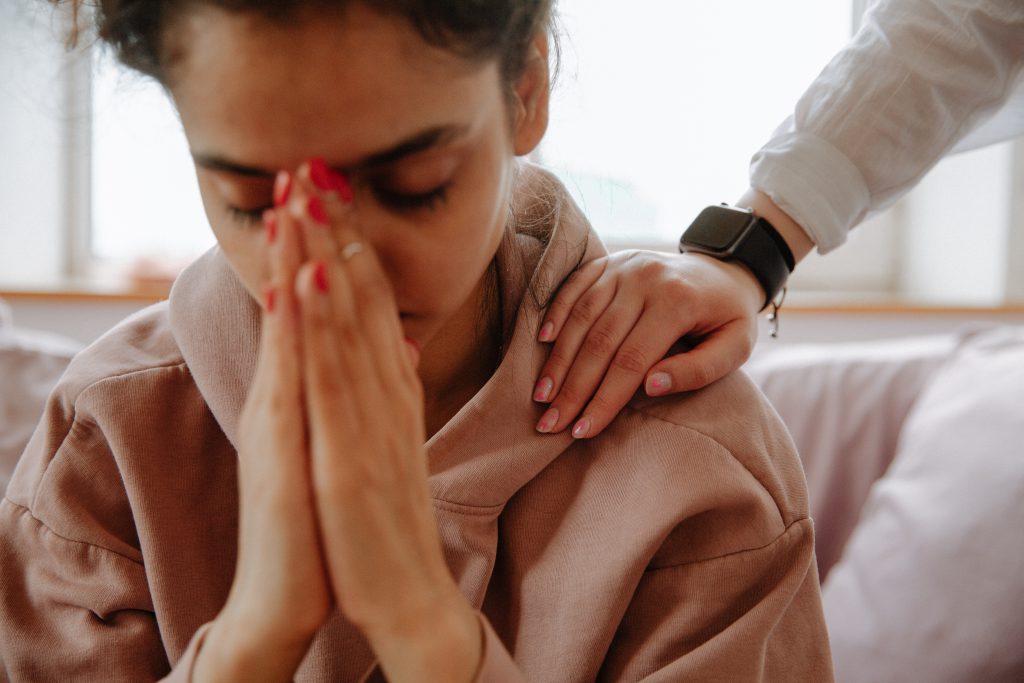If you’re a fan of astrology, tarot cards and crystals, you’ve likely heard the word “empath” tossed around over the years. And you may be wondering, “What the heck does that mean?” or even “Am I an empath?” Well, as an empath myself, I’m here to help on this journey of self-discovery.
An empath is someone who absorbs other people’s emotions. They’re very sensitive to the ways others around them are feeling and can even take on someone else’s physical symptoms. And while there are plenty of sensitive people out there, less than 5% of the population are true empaths.

Psychiatrist Dr. Judy Orloff has been referred to as the godmother of the empath movement, having written a number of books on the topic, including “The Empath Survival Guide: Life Strategies for Sensitive People.” In this book, Orloff outlines the 10 traits of an empath:
Empaths are highly sensitive.
“Empaths are naturally giving, spiritually open, and good listeners,” Orloff says. “If you want heart, empaths have got it. Through thick and thin, they’re there for you, world-class nurturers. But they can easily have their feelings hurt. Empaths are often told that they are ‘too sensitive’ and need to toughen up.”
Empaths absorb other people’s emotions.
“Empaths are highly attuned to other people’s moods, good and bad,” Orloff says. “They feel everything, sometimes to an extreme. They take on negativity such as anger or anxiety which is exhausting. If they are around peace and love, their bodies take these on and flourish.”
Many empaths are introverted.
“Empaths become overwhelmed in crowds, which can amplify their empathy,” Orloff says. “They tend to be introverted and prefer one to one contact or small groups. Even if an empath is more extroverted they prefer limiting how much time they can be in a crowd or at a party.”
Empaths are highly intuitive.
“Empaths experience the world through their intuition,” Orloff says. “It is important for them to develop their intuition and listen to their gut feelings about people. This will help empaths find positive relationships and avoid energy vampires.”
Empaths need alone time
“As super-responders, being around people can drain an empath so they periodically need alone time to recharge their batteries,” Orloff says. “Even a brief escape prevents emotionally overload. Empaths like to take their own cars when they go places so they can leave when they please.”

Empaths can become overwhelmed in intimate relationships.
“Too much togetherness can be difficult for an empath so they may avoid intimate relationships,” Orloff says. “Deep down they are afraid of being engulfed and losing their identity. For empaths to be at ease in a relationship, the traditional paradigm for being a couple must be re-defined.”
Empaths are targets for energy vampires.
“An empath’s sensitivity makes them particularly easy marks for energy vampires, whose fear or rage can sap their energy and peace of mind,” Orloff says. “Vampires do more than drain an empath’s physical energy. The especially dangerous ones such as narcissists (they lack empathy and are only concerned with themselves) can make them believe they’re unworthy and unlovable. Other vampires include The Victim, The Chronic Talker, The Drama Queen and more.”
Empaths become replenished in nature.
“The busyness of ever day life can be too much for an empath,” Orloff says. “The natural world nourishes and restores them. It helps them to release their burdens and they take refuge in the presence of green wild things, the ocean or other bodies of water.”
Empaths have highly tuned senses.
“An empath’s nerves can get frayed by noise, smells, or excessive talking,” Orloff says.
Empaths have huge hearts but sometimes give too much.
“Empaths are big-hearted people and try to relieve the pain of others,” Orloff says. “A homeless person holding a cardboard sign, ‘I’m hungry’ at a busy intersection; a hurt child; a distraught friend. It’s natural to want to reach out to them, ease their pain. But empaths don’t stop there. Instead, they take it on. Suddenly they’re the one feeling drained or upset when they felt fine before.”

What do you think of these empath traits? Do you think you’re an empath? If you’d like to know for sure, check out Orloff’s self-assessment questionnaire to find out.



